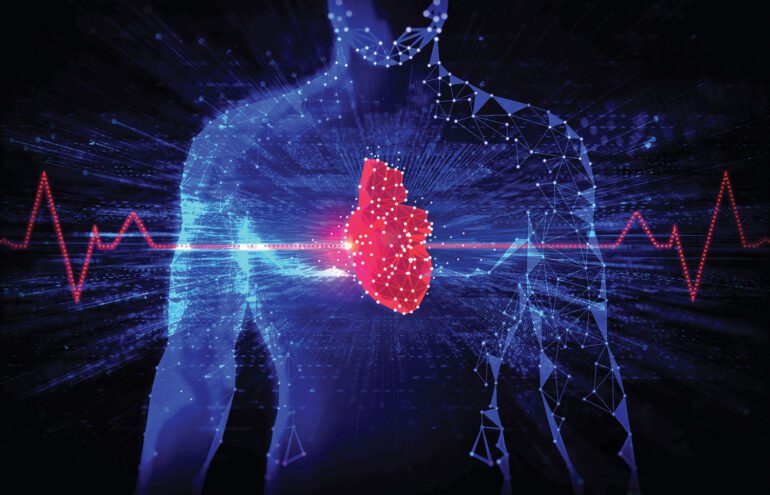TL;DR:
- AI system detects irregular heartbeats before symptoms appear.
- Research aids in developing equitable algorithms for diverse patient groups.
- Atrial fibrillation often goes unnoticed in one-third of patients.
- Chaotic heart signals can lead to dangerous blood clots and strokes.
- AI algorithm analyzes electrocardiogram (ECG) patterns for early detection.
- Trained on a million ECGs, it accurately predicts atrial fibrillation within 31 days.
- The algorithm’s effectiveness extends to a diverse population, including veterans.
- AI is transforming the preemptive management of complex cardiac conditions.
Main AI News:
Cutting-edge research has unlocked the potential for artificial intelligence (AI) to detect irregular heartbeats in individuals, even before they display any symptoms. This groundbreaking method, which uncovers hidden signals within routine medical diagnostic procedures, promises to significantly enhance the protection of patients suffering from atrial fibrillation, the most prevalent form of heart rhythm disorder, against the risk of strokes and other cardiovascular complications.
In the realm of healthcare, the development of AI algorithms has predominantly focused on individuals of white ethnicity. However, this innovative algorithm has been proven effective in diverse patient scenarios, including veterans and underprivileged Americans.
The prestigious peer-reviewed journal, JAMA Cardiology, has published the groundbreaking findings, marking a significant milestone in the convergence of AI and healthcare.
David Ouyang, MD, a distinguished cardiologist in the Department of Cardiology at the Smidt Heart Institute of Cedars-Sinai, and a leading researcher in the Division of Artificial Intelligence in Medicine, serves as the senior author of this transformative study. He emphasizes, “This research allows for the more accurate identification of hidden heart conditions, offering valuable insights into the optimal development of algorithms that can be applied universally to all patients.”
A startling revelation from this research is that approximately one in three individuals suffering from atrial fibrillation remain unaware of their condition. In atrial fibrillation, the heart’s electrical signals, responsible for regulating the blood flow from the upper chambers to the lower chambers, become chaotic. This can lead to the pooling of blood in the upper chambers, forming dangerous blood clots that can migrate to the brain, instigating ischemic strokes.
The core of this groundbreaking development lies in an AI algorithm meticulously crafted by investigators, programmed to scrutinize patterns extracted from electrocardiogram (ECG) readings. The ECG, a fundamental diagnostic test, monitors the heart’s electrical activity. Patients undergoing this examination have electrodes strategically placed on their body to detect these crucial signals.
Remarkably, the algorithm was trained using data derived from nearly one million ECGs and demonstrated a remarkable ability to accurately predict the onset of atrial fibrillation within a 31-day timeframe. Furthermore, the AI model’s efficacy was confirmed when applied to medical records from Cedars-Sinai patients, consistently and accurately detecting cases of atrial fibrillation within the same timeframe.
Dr. Sumeet Chugh, MD, director of the Division of Artificial Intelligence in Medicine in the Department of Medicine, as well as the medical director of the Heart Rhythm Center in the Department of Cardiology, highlights, “This study, involving veterans from diverse geographical and ethnic backgrounds, suggests that the application of this algorithm holds immense potential for the broader U.S. population.”
This groundbreaking research underscores the profound impact of AI in the preemptive management of complex and challenging cardiac conditions. The Smidt Heart Institute and the Division of Artificial Intelligence in Medicine continue to spearhead innovative approaches that leverage AI to revolutionize cardiovascular care and enhance patient outcomes.
Conclusion:
The breakthrough AI research in detecting hidden heart conditions is a game-changer for the healthcare market. It paves the way for more inclusive and effective algorithms, revolutionizing the preemptive management of complex cardiac conditions and significantly improving patient care outcomes. This innovation holds tremendous promise for the healthcare industry, with potential implications for diagnosis, treatment, and preventive care strategies.

